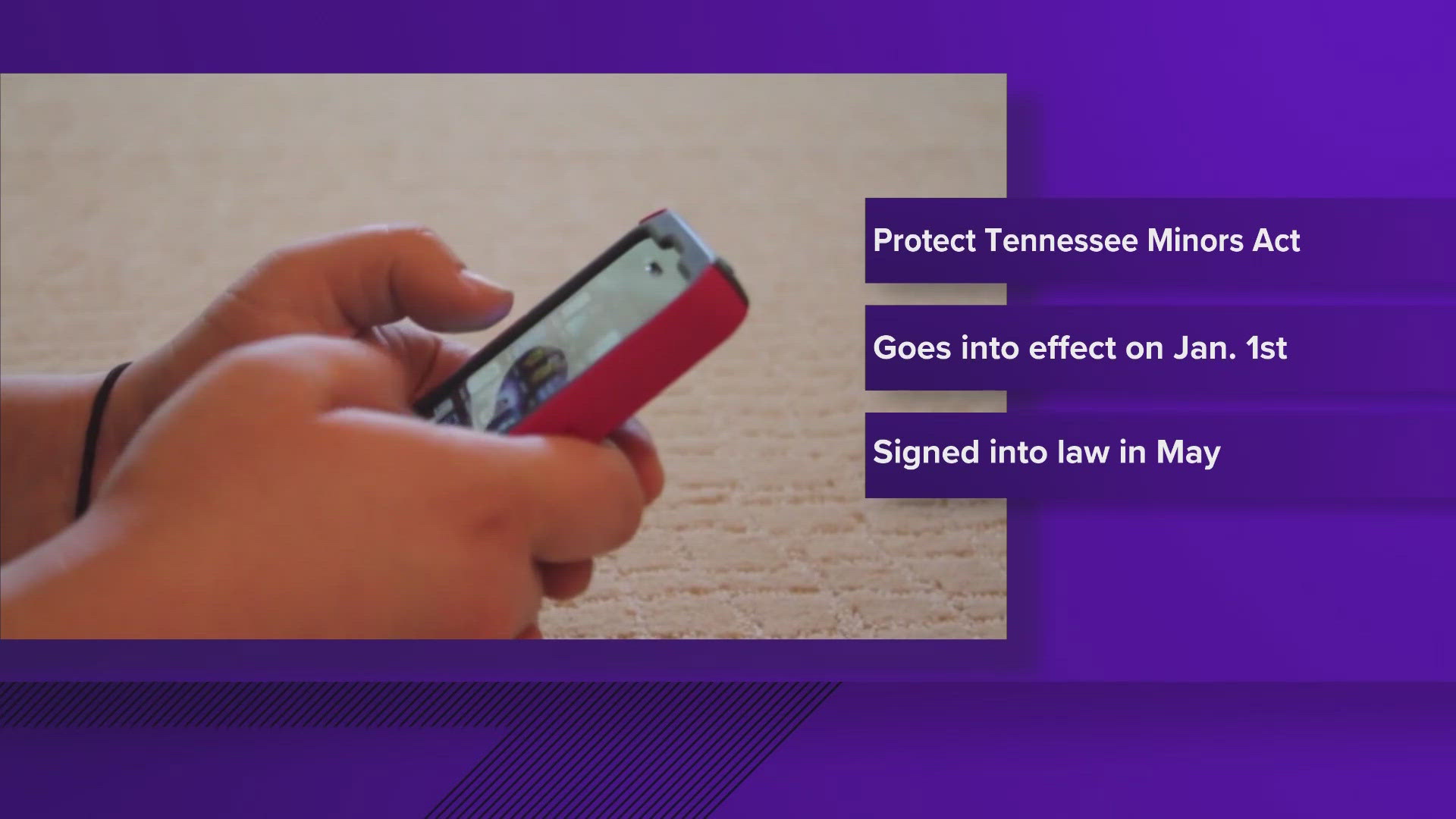NASHVILLE, Tenn. — A free speech advocacy group filed a lawsuit on Nov. 26 challenging Tennessee's "anti-porn" law around a month before it was set to take effect.
The law is named the "Protect Tennessee Minors Act" and was introduced by Republican state Senator Becky Massey from Knoxville.
The Free Speech Coalition filed the lawsuit alongside Deep Connection Technologies, a sexual wellness platform. The two were joined by content creators for "fan sites" and others. In it, they argue that the law is a violation of the First Amendment and the 14th Amendment.
The state's law is set to take effect on Jan. 1, after it was signed into law in late May. It requires websites to verify the ages of each active user who attempts to access it. Websites need to use a "reasonable age-verification method," which could require users to upload photos of themselves.
Alternatively, it could require websites to use a "commercially reasonable method relying on public or private transactional data to verify that the age of the person attempting to access the information is at least 18 or older," such as by uploading pay statements or bills. Websites would need to retain at least 7 years of anonymized age-verification data under the law, but not retain personally identifying information.
The law also defines content as being harmful to minors if it is sexually explicit or "designed to appeal or pander to the prurient interest." The lawsuit argued that the definition is tailored to more broadly define content as being harmful to children than it has been defined in previous court cases.
Massey said the bill was meant to protect minors from sexual material online and compared it to regulations restricting access to websites that advertise alcohol. She said she hadn't realized these standards weren't already in place for websites that show sexual content.
The lawsuit argues that the law violates the First Amendment because it places burdens on protected speech even though minors could access similar content from other sources. It also argues that by telling websites to implement age-verification content walls, they are unconstitutionally labeled as "adult businesses" and could face negative ramifications.
The lawsuit also argues that Tennessee's law functionally institutes prior restraint on speech, a practice which the United States Supreme Court decided was unconstitutional in the 1931 Near v. Minnesota case.
The Free Speech Coalition also argued that because the law is vague, it violates the 14th Amendment by not clearly describing who it applies to. The erotic website said that because it's unclear whether the restrictions apply to the platform itself or to content creators, it plans to prevent IP addresses based in Tennessee from accessing the website if the law goes into effect.
The lawsuit said several websites, including ones that are not pornographic, may need to implement age-verification content walls should the law go into effect. It also argued the law would not be effective because minors have other routes to getting similar content.
It asks for the court to find that the law is unconstitutional and prevent it from being enforced.

